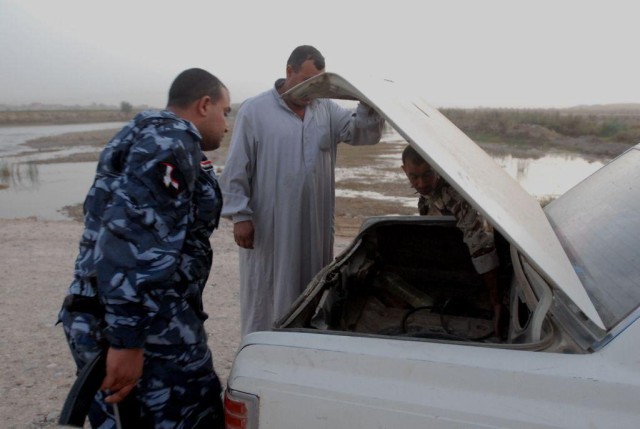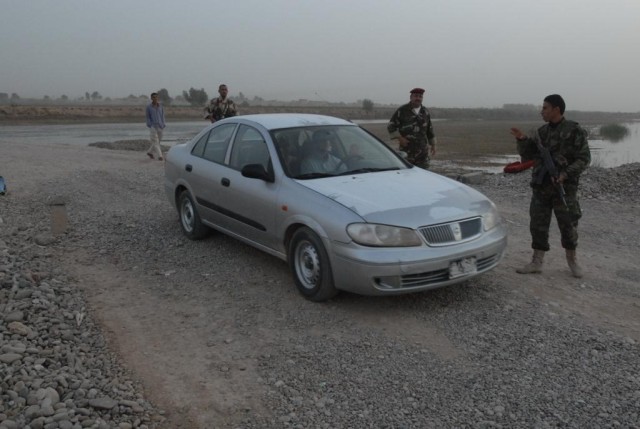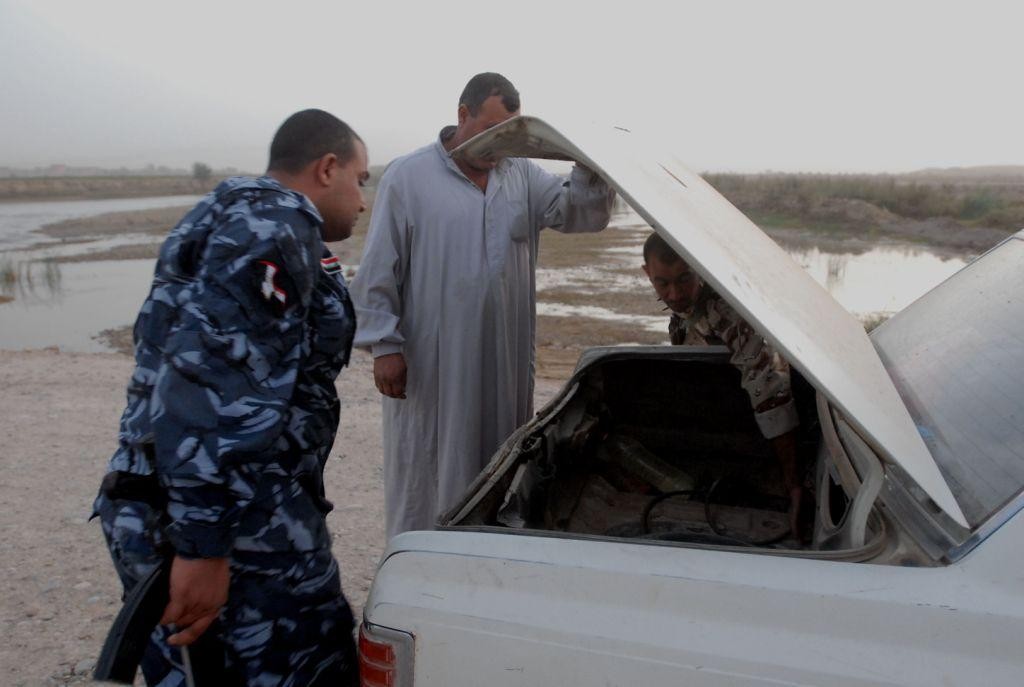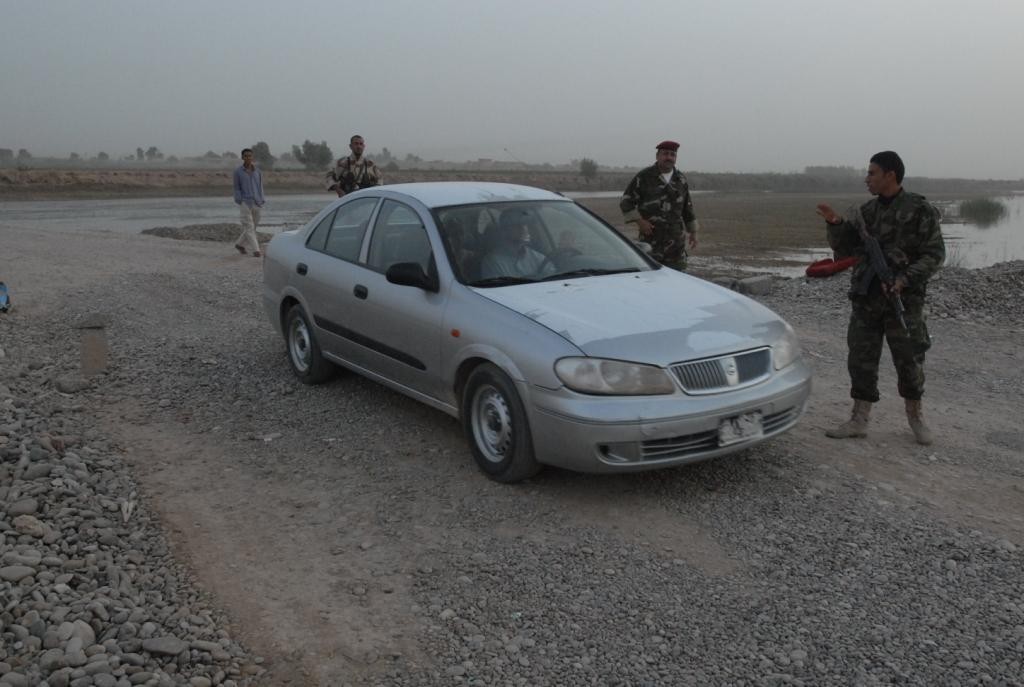FORWARD OPERATING BASE WARRIOR, KIRKUK, Iraq - As a means of fighting terrorism, the placement and use of traffic checkpoints often prove effective.
As a recent example illustrates, Iraqi Police in the Kirkuk province of Iraq detained suspected al-Qaeda in Iraq members in possession of bomb-making materiel because they reportedly saw something suspicious in one of their vehicles at a check point Oct. 22.
The discovery by the alert IPs eventually led to an operation that netted a total of nine members of an AQI cell in Kirkuk and the discovery of 17 blasting caps, four initiator devices and over 300 pounds of ammonium nitrate.
Ammonium nitrate, initiated by gasoline, is a common ingredient in many homemade explosives used by insurgents.
One of the nine is Abdallah Abd Qadir, who had previously purchased thousands of pounds of ammonium nitrate throughout 2006 for unknown reasons. Abdallah has ties to known AQI members associated with insurgent activity in Baghdad.
The relatively simple security measure likely saved lives.
In support of these security measures, military police operating out of Joint Security Station McHenry in Hawijah, Iraq, routinely check up on these checkpoints to ensure they are operating at peak performance.
"When operated properly, these checkpoints are vital to the security of this area," said Staff Sgt. Jon Sausser, a Pasadena, Texas, native and a squad leader with the 218th MP Company.
These checkpoints search vehicles for illegal weapons, ammunition, and explosives, along with warranted criminals and known insurgents.
According to Sausser, his squad routinely checks on several checkpoints in their area of operation to evaluate their performance and to ensure they are effectively searching vehicles.
In addition, the military police also conduct training with the ISF manning the checkpoints.
"The Americans teach us classes on searching vehicle and on operating the checkpoints," said Sala Muhammed Hussein, a member of the Sons of Iraq, who works at a checkpoint near Shariyah.
"They gave us good instructions," he said. "This helps us do our duties really well."
Sala said that his checkpoint operates with both Sons of Iraq and Iraqi Police, and that they both work together to ensure the security of their checkpoint.
"We search every single vehicle that comes through," he said. "If they have ammunition, rifles or pistols they would not get through here."
This area is safer because this checkpoint is here, according to Sala.
Sausser said that since his unit began working with these checkpoints, he has seen a noticeable improvement.
There are now more ISF present per checkpoint than there were in the past, and they have also begun holding training sessions on a daily basis to improve the way they operate the checkpoints, he explained.
"They are getting better on the way they do things," he said.




Social Sharing